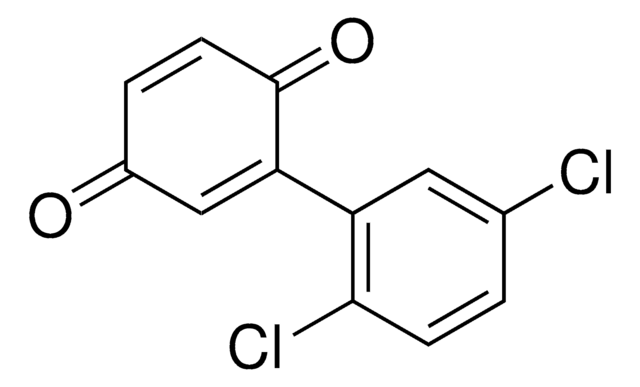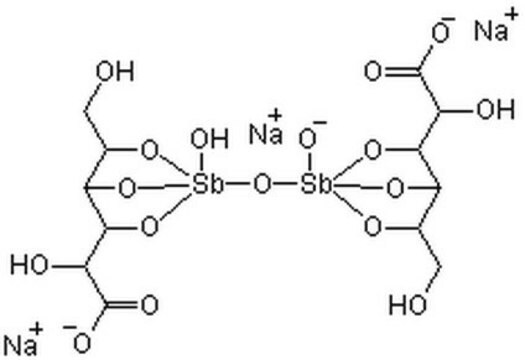565851
NSC-87877
≥97% (HPLC), solid, SHP1/2 PTPase inhibitor, Calbiochem®
Sinónimos:
SHP1/2 PTPase Inhibitor, NSC-87877, 8-Hydroxy-7-(6-sulfonaphthalen-2-yl)diazenyl-quinoline-5-sulfonic acid, Disodium Salt, HePTP Inhibitor II, PTP Inhibitor XXV, PTP1B Inhibitor IV, SHP1 Inhibitor I, SHP2 Inhibitor I
About This Item
Productos recomendados
product name
SHP1/2 PTPase Inhibitor, NSC-87877, The SHP1/2 PTPase Inhibitor, NSC-87877, also referenced under CAS 56932-43-5, controls the biological activity of SHP1/2 PTPase. This small molecule/inhibitor is primarily used for Phosphorylation & Dephosphorylation applications.
Nivel de calidad
Análisis
≥97% (HPLC)
formulario
solid
fabricante / nombre comercial
Calbiochem®
condiciones de almacenamiento
OK to freeze
desiccated (hygroscopic)
protect from light
color
red-brown
solubilidad
water: 10 mg/mL
Condiciones de envío
ambient
temp. de almacenamiento
2-8°C
InChI
1S/C19H13N3O7S2.2Na/c23-19-16(10-17(31(27,28)29)15-2-1-7-20-18(15)19)22-21-13-5-3-12-9-14(30(24,25)26)6-4-11(12)8-13;;/h1-10,21H,(H,24,25,26)(H,27,28,29);;/q;2*+1/p-2/b22-16+;;
Clave InChI
YOGRUDWAJPVHEL-LLDDCTHSSA-L
Descripción general
Acciones bioquímicas o fisiológicas
SHP1/2 PTPase
Envase
Advertencia
Reconstitución
Otras notas
Información legal
Código de clase de almacenamiento
11 - Combustible Solids
Clase de riesgo para el agua (WGK)
WGK 2
Punto de inflamabilidad (°F)
Not applicable
Punto de inflamabilidad (°C)
Not applicable
Certificados de análisis (COA)
Busque Certificados de análisis (COA) introduciendo el número de lote del producto. Los números de lote se encuentran en la etiqueta del producto después de las palabras «Lot» o «Batch»
¿Ya tiene este producto?
Encuentre la documentación para los productos que ha comprado recientemente en la Biblioteca de documentos.
Los clientes también vieron
Nuestro equipo de científicos tiene experiencia en todas las áreas de investigación: Ciencias de la vida, Ciencia de los materiales, Síntesis química, Cromatografía, Analítica y muchas otras.
Póngase en contacto con el Servicio técnico








